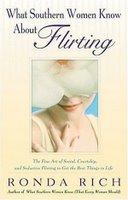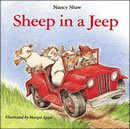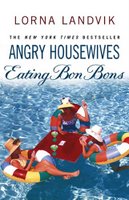My Mission...Not Impossible...Make Mississippi Read!
Wednesday, June 28, 2006
Flirt Alert:
What Southern Women Know about Flirting (copy)
 Ah, the art of flirting, all respectable Southern woman use this secret weapon every once in a while. It is one of the basic tools in our psyche, allowing us to obtain wants and needs in a fun, game-like manner. Flirting allows us to meet new people, charm the curmudgeons, and climb the business ladder. We know exactly when to use it and when to turn it off.
Ah, the art of flirting, all respectable Southern woman use this secret weapon every once in a while. It is one of the basic tools in our psyche, allowing us to obtain wants and needs in a fun, game-like manner. Flirting allows us to meet new people, charm the curmudgeons, and climb the business ladder. We know exactly when to use it and when to turn it off.
Margaret Mitchell got it right in Gone with the Wind, when Bonnie Blue hugs and kisses a delighted Daddy Rhett, and then asks for a pony. We, as Southern girls, are always Daddy’s little girl and carry this special gene for the flirting ability.
Our fathers activate this gene without consciously being aware. From the beginning, they melt when asked for something, if given the proper XXOOs lead-in. When they realize they may be spoiling us, they slow down rewards. We still get what we want, but we may wait a couple of months or years for satisfaction. This slow down is an opportunity to hone our skills for the hard sell, we know her as mother.
Ronda Rich fills her book, What Southern Women Know about Flirting, with wonderful Southern stories to demonstrate our God-given ability. One of my favorites involves the marital argument, which always occurs if one spouse thinks the other is “laying it on too thick” at a social event.
“…an Alabama-trained diva, and her husband left a Christmas party and immediately entered into an argument over her allure and charm, which had held most of the men at the party captivated. He thought she had taken too far her vow to always uphold social flirting as a critical attribute of Southern womanhood. As they argued, he swerved the car and looked up moments later to see a blue light flashing behind him.
He pulled over and a trooper approached the car. Since [the] husband, an attorney, had partaken of a couple of glasses of wine over the course of the evening, he was a bit nervous. After checking his license, the trooper said, ‘Sir, can you recite the alphabet for me?’
[The wife] leaned across her husband and said sweetly with a flutter of her eyelashes, ‘Now, officer, he couldn’t recite the alphabet when he was a senior at Ole Miss. Why would you expect that of him now?’ She finished the question with a delicious, flirtatious smile, and the officer laughed so hard that he dropped the whole matter.
As her chastised husband pulled the car back onto the road, she asked mischievously, ‘Now, what do you think of my charm?’”
Tags: Booktalk
Tuesday, June 27, 2006
Just for fun...Thanks Orange Blossom
| You are Betty Grable |
 The ulitmate girl next door You're the perfect girl for most guys Pretty yet approachable. Beautiful yet real. |
Monday, June 26, 2006
Wednesday, June 21, 2006
We are All Welcome Here (Copy)
Author Elizabeth Berg received a letter in 2003 requesting she write the story of polio survivor, Pat Raming. The letter, written by Pat’s youngest daughter, Marianne Raming Burke, began, “I have no idea if you get this type of request often, however what is life without risks?”
Fiction writer Berg was ready to pass on the request, believing a non-fiction author would better suit Mrs. Burke’s needs. In the Author’s Note, Berg states, “I don’t like to take ideas from anyone—it goes best when I work alone.”
Yet, she could not stop looking at the photograph enclosed in the letter. The picture depicts a wheelchair-bound, young mother and sweet, curly-blonde daughter in front of their ranch home in California. “I was so taken with the lack of pity and the strength and joy I believed I saw on her face," Berg wrote in an e-mail.
Four days before Marianne’s birth in 1952, her mother contracted polio that placed her in an iron lung. Marianne, the youngest of three, believes she is the only baby to survive an iron lung birth. Marianne added, "They had her funeral ready and mine."
To make matters worse, Mr. Raming suggested they put their children up for adoption. The cause of their immediate divorce, Pat vehemently denied this insensitive request. It was now Pat’s responsibility to raise three children, all under the age of six, within her wheelchair-toting, portable lung. Although the book, We are All Welcome Here, is based on this true story, it is purely fictional. Berg, who likes to explore mother-daughter relationships in her novels, has chosen polio-stricken mother, Paige Dunn, and only child, Diana Dunn, as her main characters.
Although the book, We are All Welcome Here, is based on this true story, it is purely fictional. Berg, who likes to explore mother-daughter relationships in her novels, has chosen polio-stricken mother, Paige Dunn, and only child, Diana Dunn, as her main characters.
In the summer of 1964, 14-year-old Diana is the primary night caregiver to Paige. It’s another grueling summer in Tupelo, Mississippi, not only for the heat but also the simmering discourse between the races. There are three individuals in the Dunn household struggling with freedom issues: Paige, Diana, and the house cleaner, Peacie.
This is unlike any book Elizabeth Berg has written. She seems to rush through this story, as if she has a train to catch. The plot is predictable, yet, I can’t taint a woman who adds Elvis to her mix of characters. If anything, pick it up for the local flavor, it only takes a day to read.
Tags: Booktalk
Monday, June 19, 2006
My Fantasy Quest
In my quest to Make Mississippi Read, I wanted to explore a genre of the unfamiliar. I’ve read the Harry Potters and have tried to promote read-a-likes, but you can’t fool children. They know when you haven’t read a book. So, on special assignment and because this is a genre bookstores carry, I listened to fantasy on CD including Eragon by Christopher Paolini
So, on special assignment and because this is a genre bookstores carry, I listened to fantasy on CD including Eragon by Christopher Paolini
A Series of Unfortunate Events: The Grim Grotto by Lemony Snicket and a book by Dave Barry and Ridley Pearson titled Peter and the Starcatchers. I also read The Thief Lord by Funke and the new book Buried Fire by Jonathan Stroud.
This genre is not only fun but also addictive. I find it utterly amazing how writers dream up these new worlds. Along with new lands, they create outrageous names and unheard of creatures. They truly force their reader to take on the whole package that is their story or put it down. They present us with their own vocabulary which you must learn or face further chapters of confusion. This could be the reason many begin in a reality setting then fall through the infamous rabbit hole to a new world below.
These books pack excitement that keeps the pages turning. Many are full of end-of-the-chapter cliff hangers that yell at you to hold it; bathroom break later. The plot driven device is “good versus evil” and the hero is usually a child. Reader’s can really relate to the hero: a kid about their age, without all the answers, and willing to try stupidly brave acts. By sheer grit and determination this hero saves the fantasy world or conquers the evil that controls it. These books empower the child reader to take the steps necessary to become the hero.
Wherever there are children reading good fantasy, there will be controversy. One doesn’t occur without the other. I once had a whole family (5 kids ages 4-12) refuse to participate in our Summer Reading Program because the theme was “Fantasy Quest.” It is with heavy heart you listen to their reasons, present yours, and know that compromise is highly unlikely. Funny, they want their children to believe in an invisible force called God, but are afraid they will also believe in a fantasy world filled with witches and dragons. Let’s try trusting the kids to know the difference and act accordingly.
Wednesday, June 14, 2006
The Dead Beat (copy)
As we age, some things just naturally occur: we lose a little hair, we wrinkle a little around the eyes and we begin to hold the newspaper further away, as we read the obituary page. Yes, the aging process gently leads us to the daily reading of obituaries.
In our 20s and 30s, we just glance over the names of the newly departed. If we know the person, we skip to the last sentence to address the donation check or make visitation plans. In our late 30’s through early 50s, we start reading deeper into the announcement, looking to aid survivors by phone calls or food. When is it we start to focus on the age of the deceased as less a curiosity and more a barometer to our own longevity?
As you read obituaries, you start to wish they conveyed more of the person’s past spirit. The articles contain the basics, yet they miss the essences that made a life essential on earth. As Marilyn Johnson says in her new book, The Dead Beat, “A little life well lived is worth talking about.”
Author Johnson claims this is a good time to die. “Historians tell us we are living in the Golden Age of the Obituary.” Three of the biggest papers in America have reporters who report only on the departed—an assignment known fondly in the business as the “dead beat.”
The obituary section, usually assigned to insubordinate reporters as punishment, became an opportunity to weld ink pens filled with bittersweet sentiments. Banished to the basement, reporters figured no one would be reading their work so why not jazz it up. They even took to mock announcements, giving overly flourished eulogies, punctured with an atmosphere of hush, to saintly ghost that were never born.
Famous people require a reporter to research their lives and have the obituary written months in advance. These two-to-three, column-long missives called “canned obituaries” are ready when it is time for the second act.
Violet-eyed, Elizabeth Taylor’s obituary has been written and rewritten as the actress struggles with continuing health issues—multiple broken backs, life threatening pneumonias, hip replacements and now congestive heart failure. One eager reporter, in the early 90s, leaked her canned obit to the presses. After reading them she said, “The best reviews I ever had.”
Tags: Booktalk
Tuesday, June 13, 2006
Beep! Beep! I need Sheep in a Jeep!
 The Accelerated Reader (AR) program has an admirable mission and all public libraries want to help. As public institutions, we purchase materials for the public, but out of necessity, we have added extra AR paperbacks to the collection. Why? The demand is great and the elementary schools libraries do not allow children to check out.
The Accelerated Reader (AR) program has an admirable mission and all public libraries want to help. As public institutions, we purchase materials for the public, but out of necessity, we have added extra AR paperbacks to the collection. Why? The demand is great and the elementary schools libraries do not allow children to check out.
Picture little Betty coming home and telling mom she needs to read Sheep in a Jeep by Nancy Shaw for school. Time always of the essence, big Betty fires up the car and heads to the public library. They greet the happy librarian who takes little Betty by the hand and shows her Sheep in a Jeep and others in the sheep series. Meanwhile big Betty pulls out the AR list and begins the search for four more.
So, what is the big deal? Well, as the Betties leave with their five AR books, no time for any extra books, they pass Joe and Joe Jr. Yep, Joe has the same list and Sheep in a Jeep just departed with the Betties. Joe Jr. is in little Betty's class and eventually all these easy reading mates will visit the library before the week ends. The holds list for Sheep in a Jeep just jumped to fifteen.
It is a difficult situation to force a public library to buy multiple books because of school assignments. Really, with shelf space concerns, one hardback or two paperback copies of Sheep in a Jeep is enough. It might not be so bad if you are working with just one school. In our area there are three different elementary schools, which have bought, and brought different AR lists.
As a public library we have a special mission to supplement the school curriculum as much as feasibly possible. We just look unprofessional come the third, fourth, and so on kids we cannot serve because of demand. You can see why the schools prefer their books sit on their shelves.
My answer is to give these kids more time with AR books while in school. Provide 20 minutes in the morning and possibly take the test after lunch. We as librarians can also be sure to add silly, just for the heck of it, books to their AR pile.
"Miss Betty, have you read Don't Let the Pigeon Drive the Bus?"
Saturday, June 10, 2006
Paid to write that that
Now, stand back, I’m about to step upon my soapbox.
Where is Marilyn Johnson’s editor? I love this book for many reasons, mostly the humor, the inside information, and the unusual subject. That said, how do I write a positive review when the author makes (elementary school) English mistakes?
Throughout her surprise chat with Billy Collins she misrepresents the possessive apostrophe with an extra “s.” On pages 45 & 46 she writes, “Collins’s anthology” and “Collins’s father.” Just how many Billy Collins(es) is she yapping to. She doesn’t capitalize titles like on page 44, “former poet laureate of the United States, Billy Collins.” This very sentence begins with “and” as follows. “And that was when I saw that that great stillness next to the window was the former,” add above ending.
Yes, I know what you are thinking, calling a spade a spade, aren’t I.
I just finished looking up the rule for apostrophes and am clearly in the wrong. Author Johnson has correctly placed the divet for which I became riled. Please excuse my ignorance. The rule I found gave the "Jones's bakery" as an example. If it was more than one it would be "Joneses' bakery."
I still stand by my other observations. I believe she should erase and rewrite the whole sentence on page 44. For example, "It was then, I noticed the great stillness to be no other than the former Poet Laureate of the United States, Billy Collins."
Stay tune for further updates...
Stepping down from soapbox to write more notes…
“The Independent, in an effort to dodge the desperate chronology, appends to its obituaries a little shaded box with the particulars of the subject’s birth, death, marriages, and positions, and a few other papers have followed.” Colin Haskin of Canada’s Globe and Mail, “calls it the Black Box, which is apt, even if the box it’s in isn’t black.”p37
The story of Opal Petty, on page 38, was institutionalized by her parents for three decades for wanting to dance.
Former Poet Laureate, Billy Collins, shares a subway car with the author by happenstance. She explains her trip and discovers Collins is also a fan of the obit. He tells her, his father used to call the New York Times obits, “the Irish sports page.”
The Dead Beat (notes)
“Historians tell us we are living in the Golden Age of the Obituaries.”p10
“It’s the best time ever to read obituaries, and I’m here to tell you, it’s a great time to die.”p12
“Obit writers are invisible, writing about people who have ceased to exist. If they wrote advance obituaries for some publication’s files, and they die before their subjects, they become people who no longer exist writing about people who no longer exist.”p14
Have to say that puts a whole new meaning into the term ghost writer.
“What is the correct collective noun for obituarists? A plague of obituarists? A wake of obituarists?”p16
I personally like, an exasperation of expiration writers, or headlines like, “The Obituarists Raise Money at the Death Benefit.” What about “Local Obit Writer’s hold 3-Day Death Camp”? Please excuse my bad taste.
Richard Pearson, Post obituary editor said, “God is my assignment editor.”p20
Friday, June 09, 2006
Smells like Sweet Lemons...
Cool Quiz...
Wednesday, June 07, 2006
Angry Housewives Eating Bon Bons (Copy)
Picture a 1960s suburban cul-de-sac in Minnesota, teeming with young upwardly mobile families. This is the setting where Faith, mother of twin toddlers, feels lonely and unhappy. She is new to the neighborhood; she is even newer to Minnesota, having left her warm Texas life just three months earlier.
This has been a miserable wintry spring for Faith. Tied, no, chained to a house by fussy kids, icy roads, and ceaseless snow, the days are as exciting as watching ice melt. It doesn’t help that her pilot-husband is gone for days. If only she had family or even a friend in this frozen north, maybe things would be easier.
On this particular night, the twins are in bed and Faith is enjoying a book when the lights flicker then go out. Was it a real power outage or a prowler? To rule out the prowler, she opens the curtains to find a moonlit, wintry wonderland. Relief is short lived, as she catches stirring on the street. Swift movement, something launched, and then her window fills with a sloppy wet snowball.
Determined not to let these hoodlums get away with the blatant vandalism, Faith heads out the door; this time she takes a snowball in the shoulder and the night air fills with joyous laughter. This is how Faith meets the members of the Angry Housewives Eating Bon Bons Book Club—a close-knit group of four women who spend one day a month discussing books. Audrey is the audacious member always wearing, “necklines that plunge inches past propriety.” The tomboy honors go to the shortest member, Slip, who can walk on her hands like a circus acrobat. Merit is the shy, quiet one with a face like a china doll. Kari is the member that holds them all together with her wisdom and love.
This is how Faith meets the members of the Angry Housewives Eating Bon Bons Book Club—a close-knit group of four women who spend one day a month discussing books. Audrey is the audacious member always wearing, “necklines that plunge inches past propriety.” The tomboy honors go to the shortest member, Slip, who can walk on her hands like a circus acrobat. Merit is the shy, quiet one with a face like a china doll. Kari is the member that holds them all together with her wisdom and love.
So why do these five women harbor so much anger? Well, the name is not an indication of their true feelings. One drunken husband at a party says, “They’re just a bunch of angry housewives sitting around, eating bon bons.” The group gets together and decides it sounds like “the code name of a subversive group Gloria Stein and Sara Lee had put together.”
Angry Housewives Eating Bon Bons by Lorna Landvik is a delightful read. The book focuses less on the club’s reading material and more on their lives through three decades of meetings. It reminds me of the game Bunko, where most people come for the conversation not necessarily the game.
Tags: Booktalk
Monday, June 05, 2006
Good News!
Hot-diggity-dog!
Como Elementary school has been awarded the 2006 Laura Bush Foundation Grant Award. I wrote this, while between jobs, during the month of November. This grant provides $5,000 dollars for books, and only children’s books, which we will not have to match.
This has been one of the most satisfying grants in my grant writing 10 years, not because it is the biggest, got one for $10,000 in 1998, but because I never thought I would get it. We are a huge Democrat county in an even larger Democratic State.
Part of the grant calls for more reading time, like the DEAR (Drop Everything And Read) program. Just another one of my sneaky plans to Make Mississippi Read! *evil laugh*
Thursday, June 01, 2006
Summer Reading Challenge
 Below is my Summer Reading List! I’m participating in Amanda's Weekly Zen book challenge. Her blog is…
Below is my Summer Reading List! I’m participating in Amanda's Weekly Zen book challenge. Her blog is…
http://ttbookjunkie.blogspot.com/
I may or may not read all of these since I read based on current mood. Right now, I’m in the mood for The Big Oyster, it being past 5:00pm and my stomach growling.
Non-Fiction Reads
1421: The Year China Discovered America by Gavin Menzies
A Fine Place to Daydream by Bill Barich
Affluenza by DeGraaf Wann Naylor
A Girl Named Zippy by Haven Kimmel
Guitar by Tim Brookes
Rats: History & Habitat of the City’s Most Unwanted Inhabitants by Robert Sullivan
She Got Up Off the Couch by Haven Kimmel
Silicon Snake Oil by Clifford Stoll
The Big Oyster: History on the Half Shell by Mark Kurlansky
The Dead Beat by Marilyn Johnson
The Glass Castle by Jeannette Walls
The Lost Painting by Jonathan Harr
The Tender Bar by JR Moehringer
What Southern Women Know about Flirting by Ronda Rich
You’re Wearing That? by Deborah Tannen
Professional Reads
Every Book Its Reader by Nicholas A. Basbanes
Growing a Reader from Birth by Diane McGuiness
Who Let the Blogs Out? By Biz Stone
Self Improvement Reads
Grammar Snobs are Great Big Meanies by June Casagrande
The Gremlins of Grammar by Toni Boyle and KD Sullivan
How to Knit Afghan Book by Barbara G. Walker
Miss Thistlebottom’s Hobgoblins by Theodore M. Bernstein
Stitch ‘N Bitch by Debbie Stoller
Fiction Reads
Angry Housewives Eating Bon Bons by Lorna Landvik
Arthur and George by Julian Barnes
Brilliant by Marne Davis Kellogg
Brookland by Emily Barton
Gilead by Marilynne Robinson
In This House of Brede by Rumer Godden
The Mermaid Chair by Sue Monk Kidd
Middlesex by Jeffrey Eugenides
Perfect by Marne Davis Kellogg
Priceless by Marne Davis Kellogg
Saturday by Ian McEwan
The Kitchen Madonna by Rumer Godden
We are All Welcome Here by Elizabeth Berg






